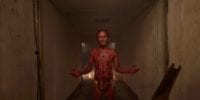Before he passed away, horror icon George Romero began work on an ambitious novel set in the Night of the Living Dead universe, which would be a culmination and expression of his vision for the world he had spent his life creating. Unfinished when he passed, award-winning writer, Daniel Kraus, was approached to complete George’s work. The result is the new book, The Living Dead, published this month by Tor Books. Concurrently with the written publication, an audiobook adaptation was prepared by Macmillan Audio, voiced by Academy Award-nominated actor Bruce Davison and Romero veteran actress Lori Cardille. I had a chance to talk to Bruce about his work on the audiobook and about other highlights of his long and varied career. True to most of the characters, but not all, that he has played on screen, he was disarmingly friendly, funny, and a hell of a storyteller. What follows is a transcript of our conversation, lightly edited for clarity, Though the written words can’t do justice to the accents and impressions he brings to his characterizations, they do give a good example of his charm and a small sampling of a life and career well lived.
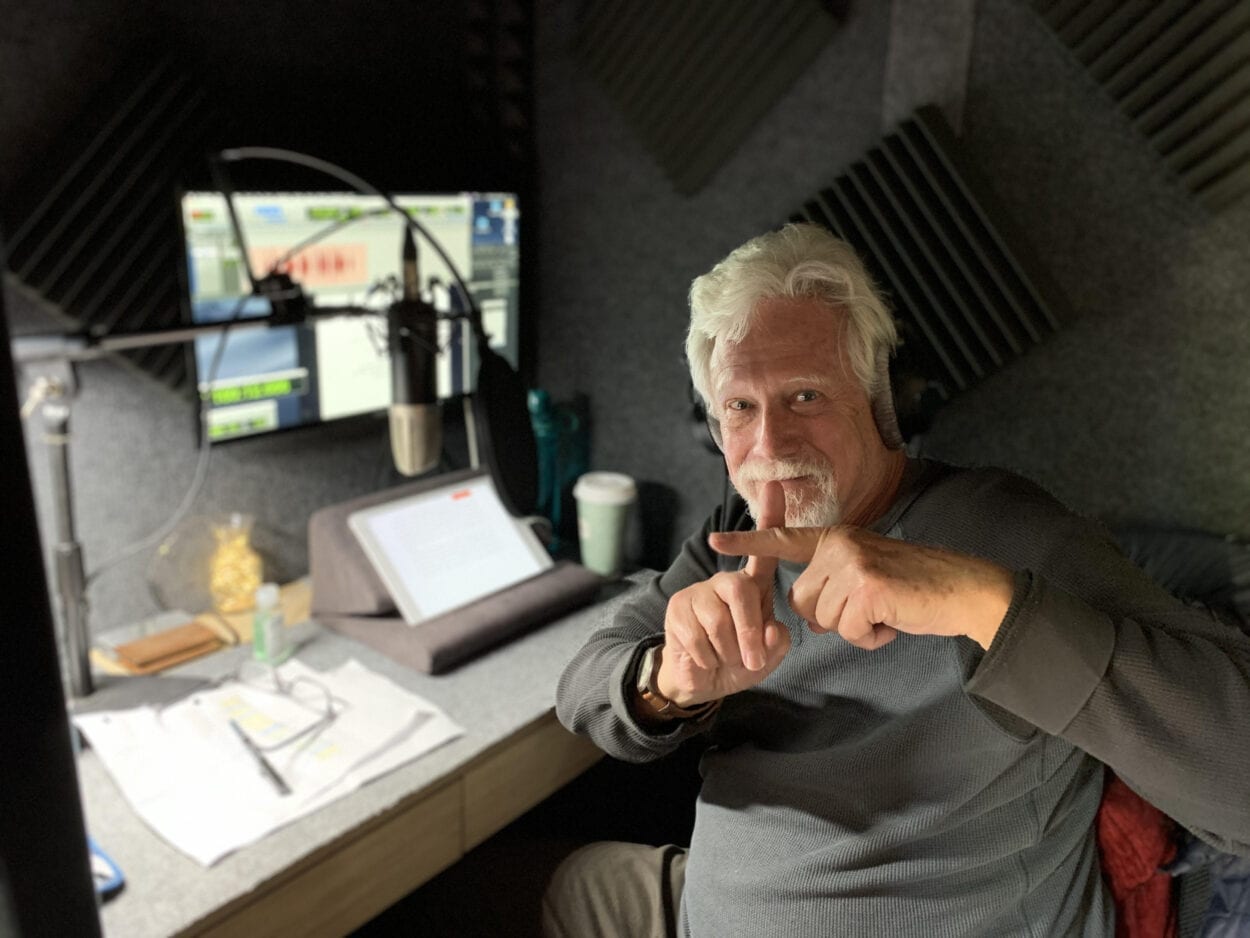
Chad Hindman: This is the first Romero project you’ve worked on?
Bruce Davison: Yes. George was a friend. George and I had the same manager and I’ve known him over the years. So, we never actually got to work together, but we’ve spent time over a few beers together.
CH: I’m guessing you’re a fan of his movies—the Night of the Living Dead series.
Davison: Yeah. Actually, we started at about the same time. I did my first film in 1968 called Last Summer, coming out of New York and he was in Pittsburgh. I’m from Philadelphia originally, but he was in Pittsburgh. I think in ‘68 when he first started shooting his films.
CH: How did you come to work on this audiobook?
Davison: Well, like I said, Chris Roe was my manager and was George’s manager for many years. George was working on his novel and he really wanted to put everything and the kitchen sink into a story that he could tell like he was sitting around the campfire. And he wouldn’t need ten thousand extras and every CGA outfitted in the west coast to put it together, and all the hundreds of millions of dollars it would cost to make the film, it could just come out of his head. Which is basically what this book is. It’s a culmination of the Living Dead, of all the Living Deads. It was very strange to be doing this after George was gone and Daniel Kraus had taken over much of the writing too, who was put together by Chris Roe. And it was very strange to be coming home from doing this, having spent all one hundred pages being chased up across an aircraft carrier in one section and then suddenly hearing about the plague on the aircraft carrier on CNN on my way home. I think the sooner they get this out the better, but then I would have said that in 1968 as well. The Living Dead has always been a great metaphor for the travails that we go through.
CH: Typically you hear audiobooks narrated by one person, but for this project, we have both you and Laurie Cardille (Day of the Dead). Would you read in the same studio, reacting to each other, or playing off each other?
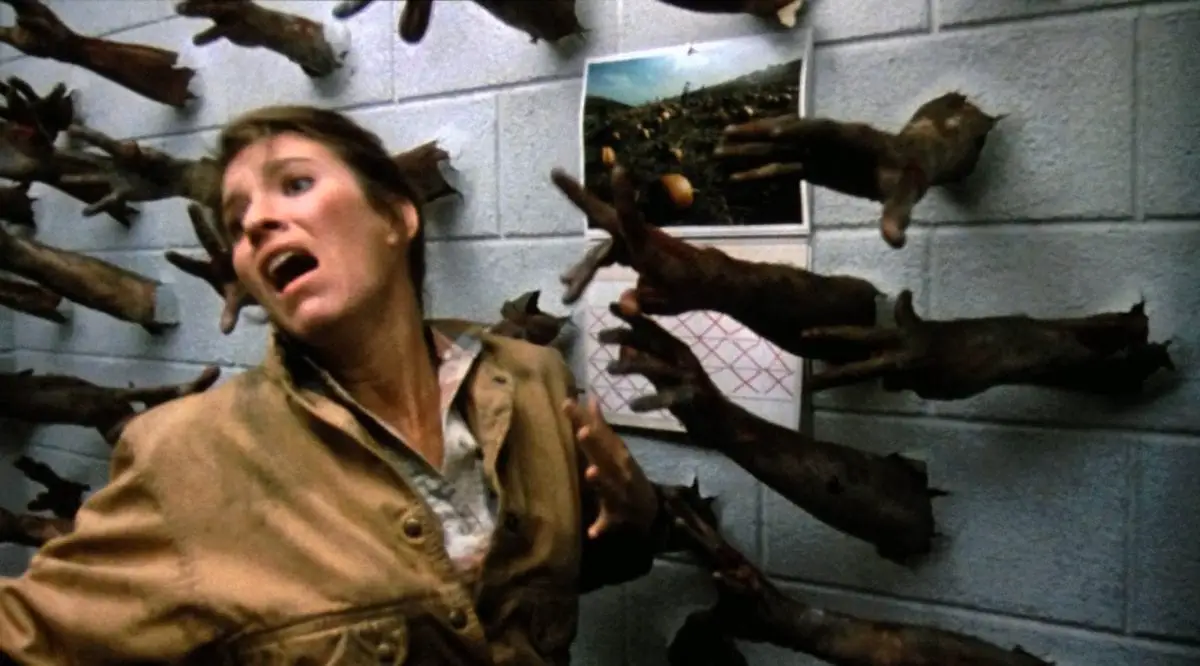
Davison: No! I believe we’re on separate coasts. We wouldn’t do it line by line, we each did separate chapters.
CH: Is this your first audiobook?
Davison: I’ve done a few of them. I did a book called Ship of Gold on the Deep Blue Sea, a non-fiction book about a shipwreck off the coast of North Carolina. They took all the gold from the San Francisco Gold Rush and sank it off the coast which caused a panic on the stock market. I did Stephen King’s book, From a Buick 8. I did one of the characters in that and got a beautiful letter from Steven and actually that went on to help me get a job on a TV series called Kingdom Hospital. Actually. I go even farther back with him and George Romero on their show, I forget the exact title up here, but it was an anthology. It was before computers had a name and I did an episode called “Word Processors of the Gods” that Stephen King had written about a guy who gets rid of his family through a word processor that had a delete key on it and he could delete his family and get a new family. (Editor’s note: Bruce is referring to an episode from the first season of Tales From the Darkside, produced by George Romero and written by Stephen King)
CH: You mentioned you had hung out with George Romero, did you ever do the same with Stephen King?
Davison: Yes, during the time of Kingdom Hospital. I got to hang out for a while with Stephen and it was just a joy because he was such a wonderful, wonderful guy and you know, I remember him even having writer’s block at a time when he was saying he didn’t know what he was going to write next, all before all of his great stuff was written.
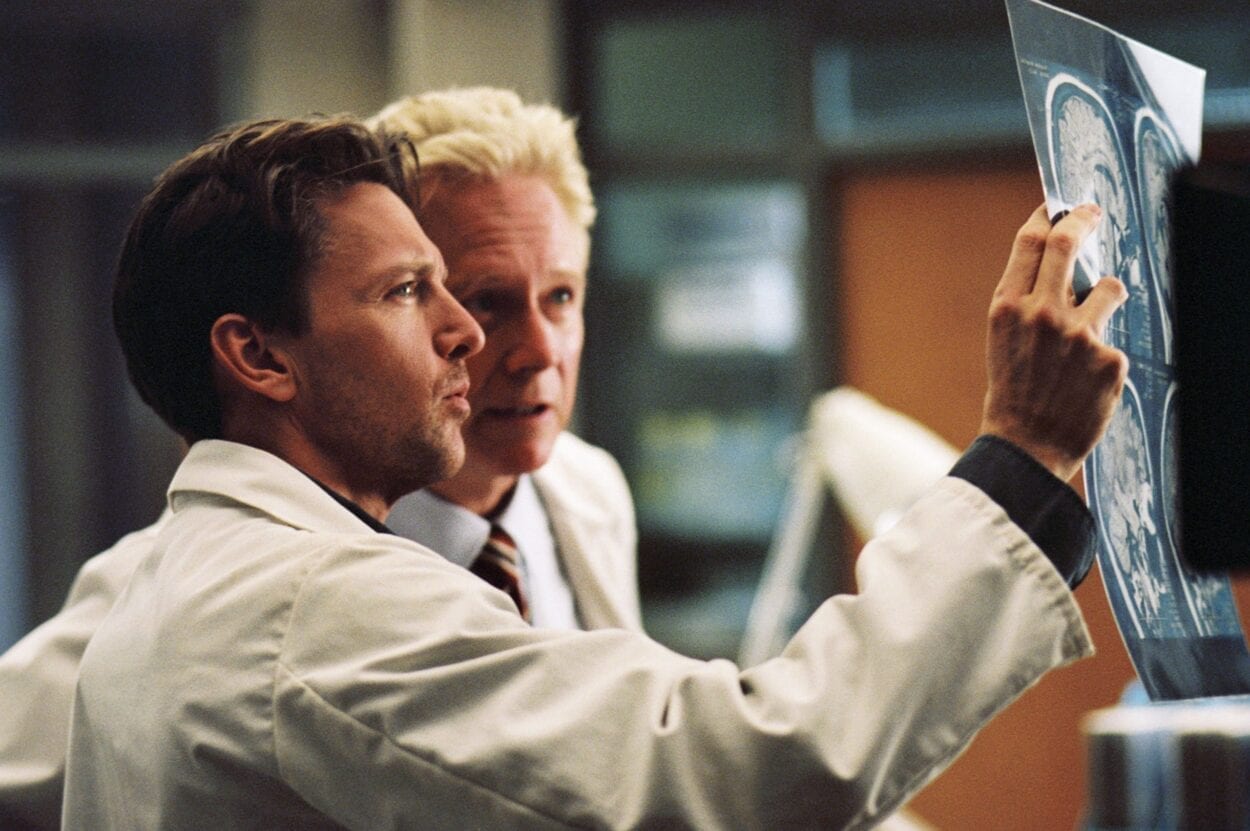
CH: The term writer’s block and Stephen King just don’t seem to go together.
Davison: Well, it certainly didn’t and it was an incredible lesson for me when I feel that I am not capable of coming up with something, to see what a genius like him would come up with after having those same feelings. I remember one time we were shooting and he had asked me, he said, “What’s that line? I love Willard? He said what was that line? You kept saying to yourself?” and I kept saying “Tear him up.” He said “No, you said I used to hate myself, but I like myself.” And he wrote me a whole scene of standing in the rain in Kingdom Hospital where I’m standing in a corner muttering to myself, I used to hate myself, but I like myself. So, I was more than honored to be honored like that by Stephen King.
CH: I re-watched Willard recently and it was great. Was that the movie you consider your big break?
Davison: Well, I did Last Summer with Frank Perry and then I did the Strawberry Statement and then Willard came along, so it’s like the third film, I think. But in the meantime, it was, it really took off. Yeah, and it was so fascinating to watch because it was so successful—was one of the top-grossing films of that year—I think it was ‘72 and then it disappeared and nobody had a copy of it for decades. It just disappeared because there were no prints. And then they finally found a print and re-edited it for Blu-ray and now it’s just back out.
CH: I got one sitting on my shelf right now! When I was a kid I understood the movie as Willard had this special power to control rats, but rewatching as an adult, I realized Ben was the one in control on the show. This guy had no special powers, Ben liked him and was letting him think that he was running the show.
Davison: Ben is running the show. He got the sequel!
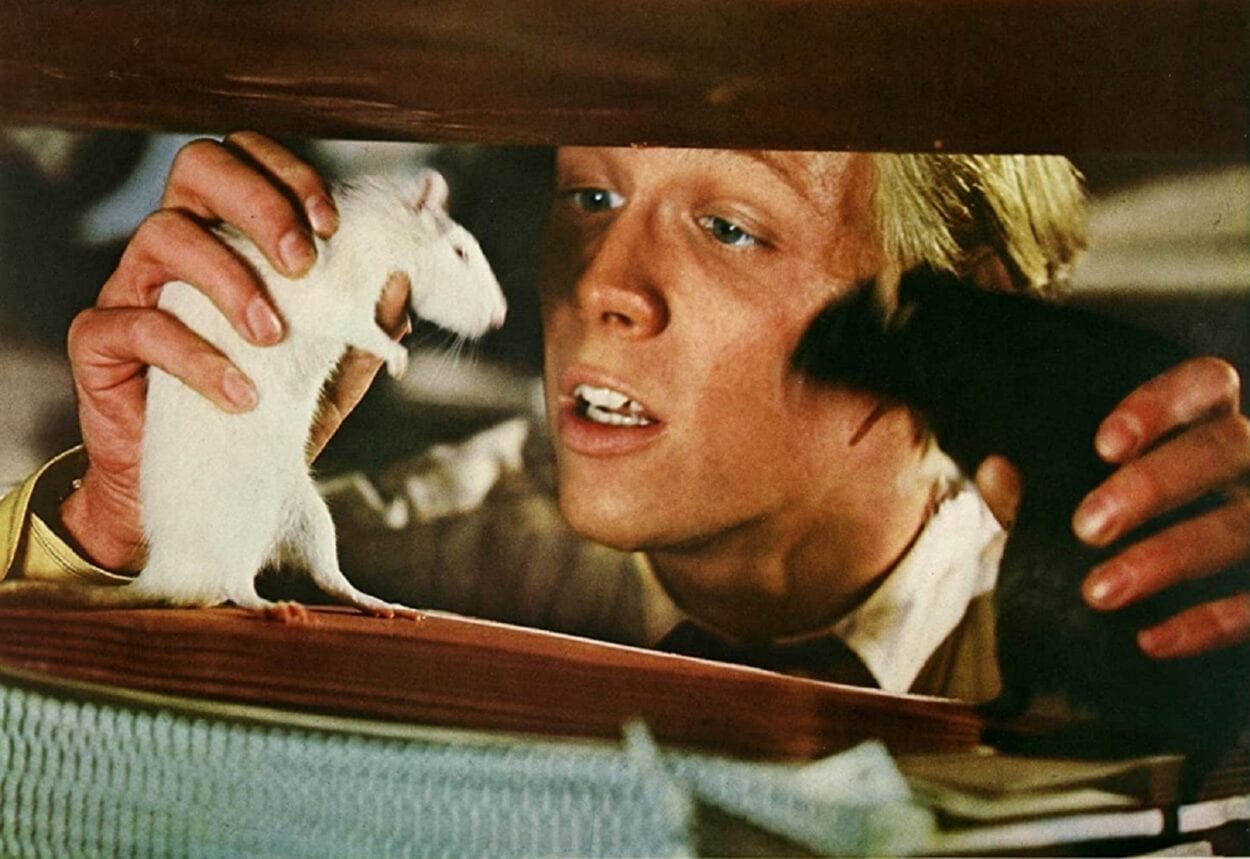
CH: Willard was in 1972, and I’m sure the horror fandom wasn’t then quite what it is now, but did you start to notice a difference between fans that knew you for your horror films and those that were fans of your other work, like your Academy-nominated role in Longtime Companion?
Davison: People are like fingerprints, everybody’s different. I mean, you mentioned the Lords of Salem, the Rob Zombie film that I did, and a lot of people wouldn’t recognize. It wasn’t one of his bigger hits. So you would recognize that and you know, somebody else might be a western fan and recognize Burt Lancaster, but everybody’s different. I’ve done so much stuff. It’s really funny, because if I go to a horror convention, I won’t get the same play as Buffy the Vampire Slayer. She spends all night writing her autograph on wooden stakes. There are 30,000 people. And five people say oh, yeah you were the guy in that…but I’m sort of like butter, I’m spread out over so many things. There’s not really one big thing that jumps out at people. I kind of like it, like that the part of being a character actor. If you’re locked into being a leading man, lots of times you’re stuck with five pictures. But if you’re a character actor you can keep doing it when you’re my age.
CH: One interesting trend I did notice in your career was you have been in several movies that are related to the AIDS pandemic. Was that something intentional on your part or did it just happen that way?
Davison: That was the plague at the time in 1987. I’ve done The Normal Heart with Richard Dreyfuss. I got to be friends with Larry Kramer who we just recently lost this year, who created Act Up and was one of the greats, was sort of the George Washington of his era, of that movement, but it just happens. You know, I got involved in Longtime Companion and I got the Academy Award nomination for that. So that’s a lot of people then typecast you in a certain way. After Willard, I got to tell you, I never kissed a girl for 10 years on film. But those were stories that needed attention and I’ve always looked for the great stories and films. And that’s what intrigues me more than anything, you know, and secondly a character and the character’s journey. Who is he? What is he going through? Those have been the things that have interested me, but like you say, it’s always been different kinds of projects. I’ve never been stuck in one genre.
CH: So there was a movie mentioned in the press release for the audiobook, The Lathe of Heaven, which was a PBS made-for-TV adaptation of an Ursula Le Guin story. All of which sent me directly to my computer to find it and watch it and it is, and I mean this in the best way, a strange movie.
Davison: It is a wonderful script and Ursula was one of the greats that I’ve had the opportunity to meet and work with, in my life. She was wonderful. I remember sitting with her, this is how long ago it was, and I said, well, you know, you gotta make the Earthsea Trilogy! She said “Well, I would really love to but there’s just no way to make dragons.”
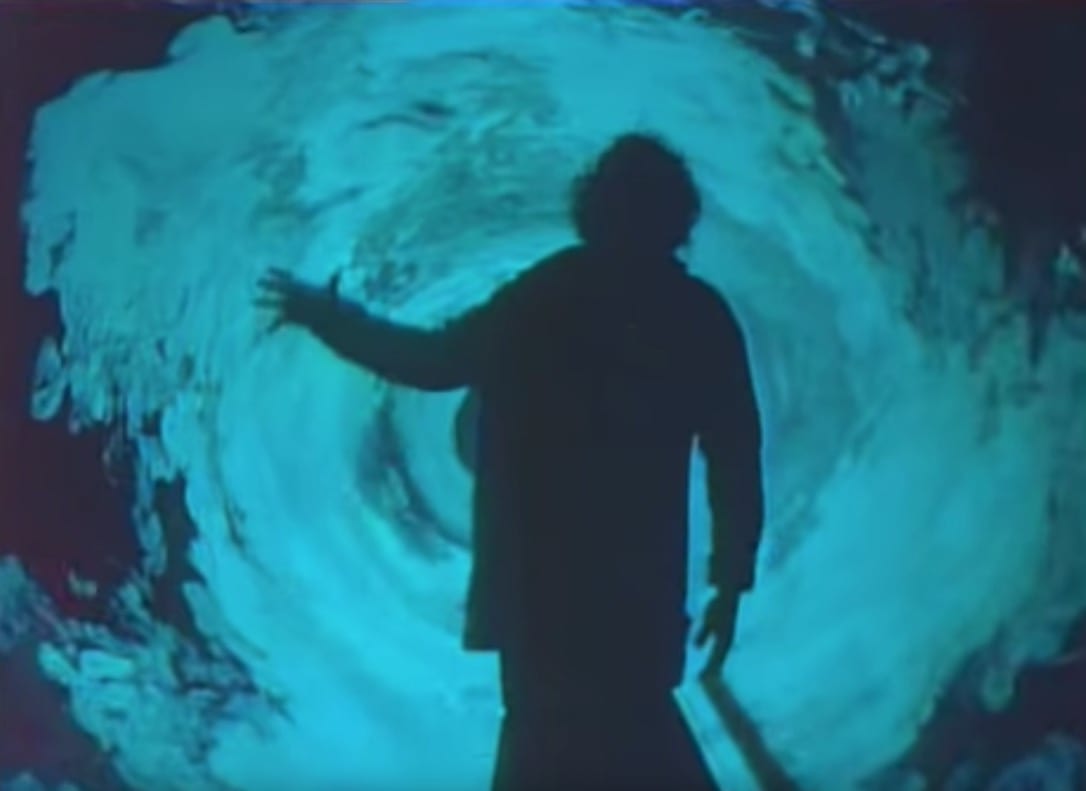
CH: Was she on the set a lot during the filming?
Davison: She was, in fact, she’s an extra in it at one time sitting next to me at lunch when I’m eating with Margaret Avery.
CH: They did a whole lot with a limited budget. Looking at the production history it seems like the driving force was a couple of producers dedicated to filming quality science fiction novels.
Davison: Absolutely. Yeah, Fred Barzky and David Loxton. They were flying by the seat of their pants. They were brilliant at what they did because they were working for pennies and just would create stuff and we’d have situations come up where they’d say “we’ve got the alien” and I said “The alien? It’s a Styrofoam turtle. It looks like a Styrofoam f*cking turtle and he said “Well, what do we do?” I said I got an idea, why don’t you smoke the room out and back light it so it’s just a shadow and I’ll walk naked up to it and talk to it and then I’ll do the voiceover for it and it’ll be an alien. And he’d “Oh good. That’s a great idea. Let’s do that.” So, we would do that. It was all sort of the seat of our pants. PBS flying along.
CH: The aliens were my favorite character, they seemed so kind and laid back.
Davison: And that’s all in your imagination because you don’t see the aliens, it’s a Styrofoam turtle. It’s all the person’s imagination. It was all Ursula. To me she was the grande dame of science fiction. She said they’re calling it speculative fiction now, it’s not so much science. She was the sweetest kindest person living up in the Great Northwest there with her family. Just great, great woman. I got in touch with her years later while I was doing Kingdom Hospital. That was the last time we were in contact. I remember she was not a fan of Larry Nivens, she thought he was sexist. She bought me a comic book of his work and said “There, now you can just look at the pictures of the naked girls.”
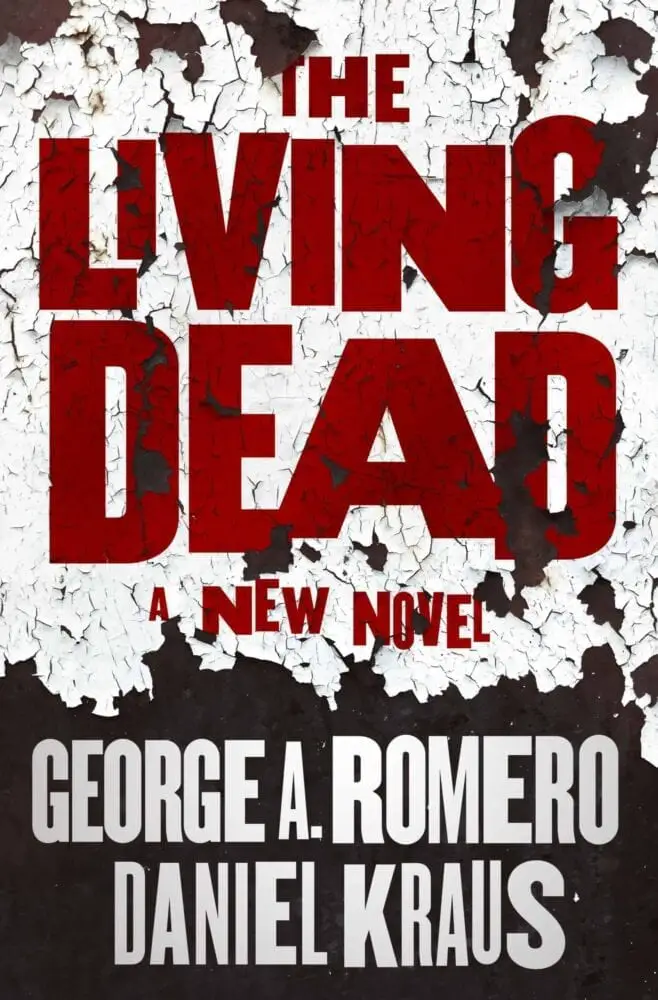
CH: In the wake of the death of George Floyd and the Black Lives Matter movement, I wanted to talk a little bit about the themes of racism and racial tension that runs throughout George Romero’s work. Is that something that strikes you about it? Do you see George’s work as relevant or at least having something to say about that current conversation that’s going on in this country?
Davison: Of course it’s applicable, but it’s always been. It’s the same with X-Men. You know, the man on the bottom. The person finding their way in the world in which people are oppressed. It’s always about oppression, you know, it’s certainly one of the topics that come up all the time, and that’s very relevant now. I knew George for many years, for a number of years and you know, his work is always been timely. I think any of the great stories are. And genres can always carry through to whatever is relevant at the time. Whether it be the oppression of women or African American culture or Native American culture. It’s always relevant to whatever times we’re living in. Doing the work we didn’t discuss too much of anything. It was sort of, you know, get through a hundred pages today. It’s sort of like you’re swimming the English Channel. One sentence to the next.
CH: Did you do anything specific to prep for getting into Romero’s world? Did you go back and watch the movies?
Davison: This is like George sitting around the fireplace telling a story. So I’m just using his words to tell a story and the best thing about a story is what happens in the imagination of the listener. That’s always the most important. What the listener is imagining. And George was always so great at storytelling. He was great at creating situations, fear-driven, in so many instances, but fear driven with sympathy. And whoever is suffering at the moment. All of those are relevant. Because it’s a universal story.
CH: I feel like I’d be remiss if I didn’t ask about your memories of some of the great directors that you have worked with. Ken Russell is one of them. You worked with him on Crimes of Passion, which I’ll be honest, I have not seen. I’ve seen Altered States and loved it. Anything stick out in your memory about working with Ken Russell?
Davison: Well, first I had a really a real woman-hating monologue in it. That was very nasty and very bitter and it went on forever. So, I was the second fiddle friend in it to the star and I just had this nasty monologue that went on for pages and pages and he just never shuts up. We shot it in a barn and Ken was doing it panning and all these intricate panning shots, and it was very, just debilitating, and it went on and on, and we did like 19 takes of it. And then on the like 20th take I blew the line. I was perfect up until that, it was always a camera move not right. And I blew the line and he started screaming at me, “You are ruining my American debut!” I said “I am not!” He looked at me and said “You’re not?!” and I said, “I’m not! I had one f*cking take I wrecked! And he said “Oh! All right.” I loved Ken. I really did. He was a madman. He was completely bonkers. He married his wife on the Queen Mary and Anthony Perkins married them and he had 40 little girls, friends of his daughters, in Rockettes uniforms on the Queen Mary. I adored working with him. He was just as my grandmother used to say, he was out in Dickie’s meadow. And by the way, they cut that scene with the monologue from the movie. It just fell dead, like a turd on a log.

CH: I also wanted to ask about your work with Robert Altman on Shortcuts, which is just an amazing movie as is most that Altman did. What sticks out to you about working with him?
Davison: After I was nominated, I suddenly found myself with a top agency with five agents in my trailer talking about my five-year plan and after I lost to Joe Pesci, I couldn’t get any of them on the phone. In the meantime, I was at a party with Robert Altman and I went up to him I said, “Listen, Mr. Altman, I saw you on Fifth Avenue a few years ago, but you really look pissed off and I didn’t want to say anything because you scared the hell out of me, but I just wanted to tell you that I would do anything. I would read the phone book for free for you.” He said, “Well, that’s good to know.”
And the next day I got a call from one of my agents saying “We’ve been working on this Robert Altman film for you for the past week and we’ve got an audition for you with Mr. Altman tomorrow. You’re to go to his house down the beach and he wants to audition you for a film.” So, I went down there and he’s in his sweats when he opens the door and he says “Come on in I’m making bread. You want any bread?” And I said, “Sure, I’ll stay for some bread.” He said “By the way, I got this film if you want to do it. I wanna have you in it and it’d be great. Jeff Daniels has fallen out.” And I said, “Yeah, sure! Want me to read or anything?” And he said nope. “The only thing I need to do is call Andie (Mcdowell) and make sure she’s not mad at you for anything, I told her I’d give her a call because she has approval of who’s playing her husband.”
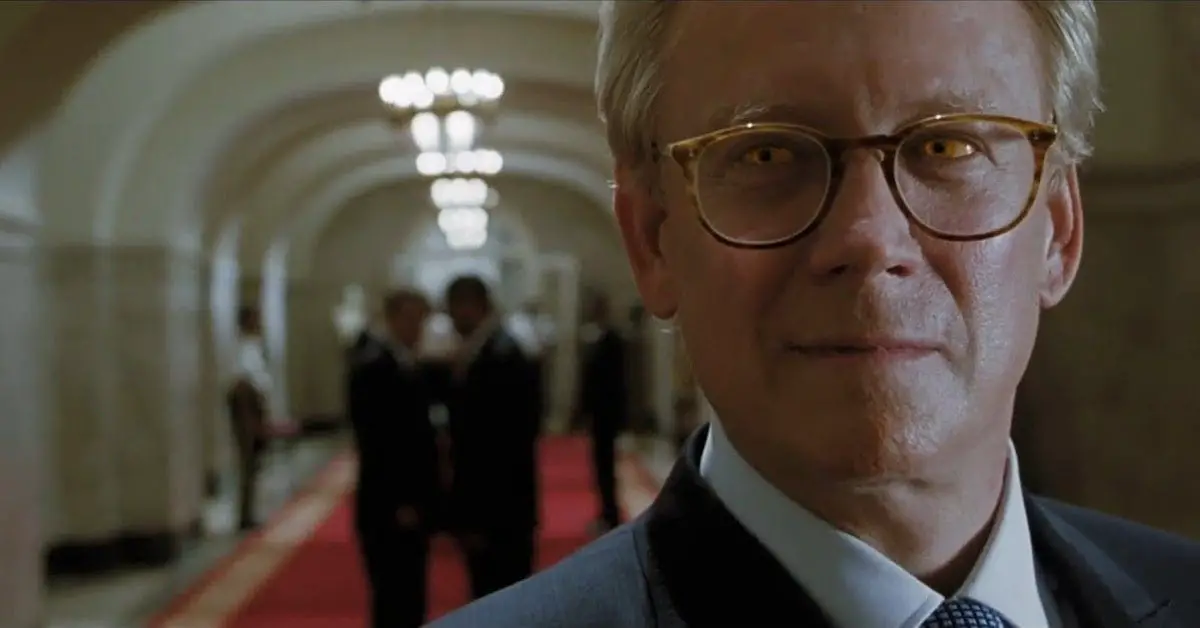
The first day I’m shooting a newscaster and he says “I want you to be like one of the owners of the newscaster things, you do these, you know, these little speeches that they put on the air occasionally. You read them, but you’ll read them badly. Okay, how can I do that? How can I do something and I read it badly. And I think, OK, they’re reading something in a self-important kind of way. They say things like (Bruce start to speak staccato and over-enunciating): Well, I’m going to emphasize every single word and everything matters to me and I’ll speak it like that.
I started doing it. We’re shooting at the local news with Jerry Dunphy. Yeah, and I’m doing these things because they’re going to play all the way through the film. They’re going to be on the TV in the background. Around noon Altman says it’s a wrap. And I’m like sh!t. That’s it. I’m fired because he’s wrapping before lunch. So we’re riding back in silence in the car. And I said was there any anything wrong with that? And he says “No! You’re the actor. I hired you. You’re the actor. You know what you’re doing.” I got the job.
So, we’re in the backyard and he had all the actors miked separately in separate spots. This is incredible because he told me years later, he said he got fired from, I think, Warner Brothers for doing what was it? A war show, Combat, over there and they fired him and they said, “they didn’t even let me come in. They just handed me a box of all my stuff in and outside the gate. They didn’t like overlapping dialogue. I said, really? And he said, “yeah, they really didn’t like overlapping dialogue. There were a lot of people together (on the set of Shortcuts) and they were all together talking over each other and then he’d say come up with the dialogue. And he would say things like, I would be in bed and our son has just died. And he says to me I want you to go over and I want you to put your arm around her and I want you to comfort her and hold her because she’s in such pain now. And then he would go over to Andie and say you can’t f*cking stand him. Then he’d say action.
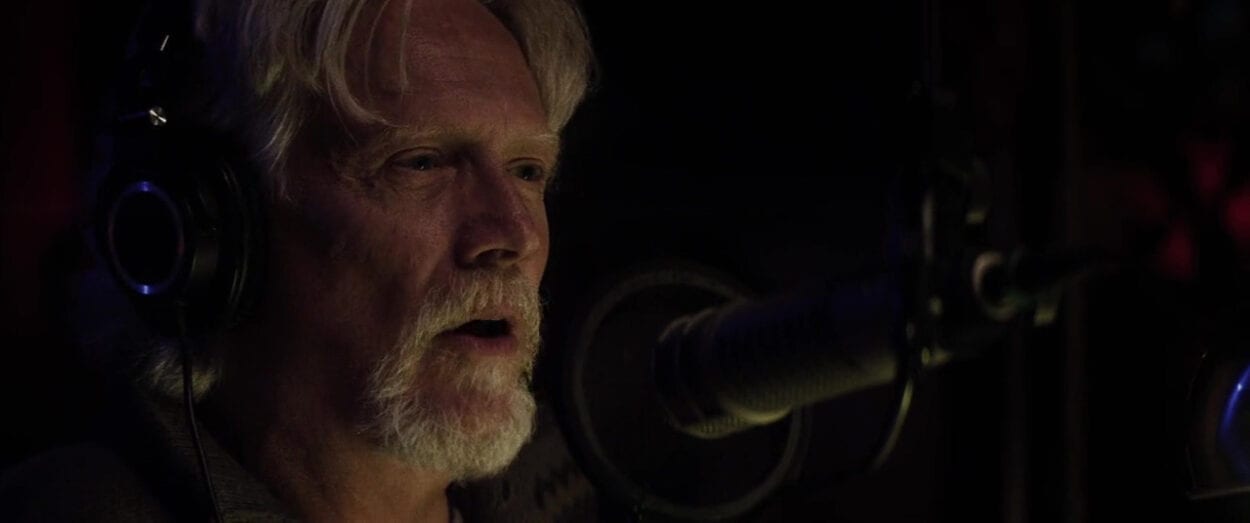
CH: I’m gonna finish by asking you about a personal favorite. You worked with Rob Zombie on The Lords of Salem, you’re good at giving your impression of a director, and I’m wondering what your impression of working with Zombie was?
Davison: Well, I’d say like Altman, the same thing, you know, he works as a collaborator. Really loves the people he works with and I’d love to work with him again. I missed an opportunity to do it the last time, I was working on something else. But he’s just such a wonderful collaborator. You know, he would sit down with me and we work out some dialogue together and everything and he was always, always experimenting. He’s a real experimenter. He’s an inventor. That’s the best word I can make for Rob Zombie. He’s an inventor as a director.


